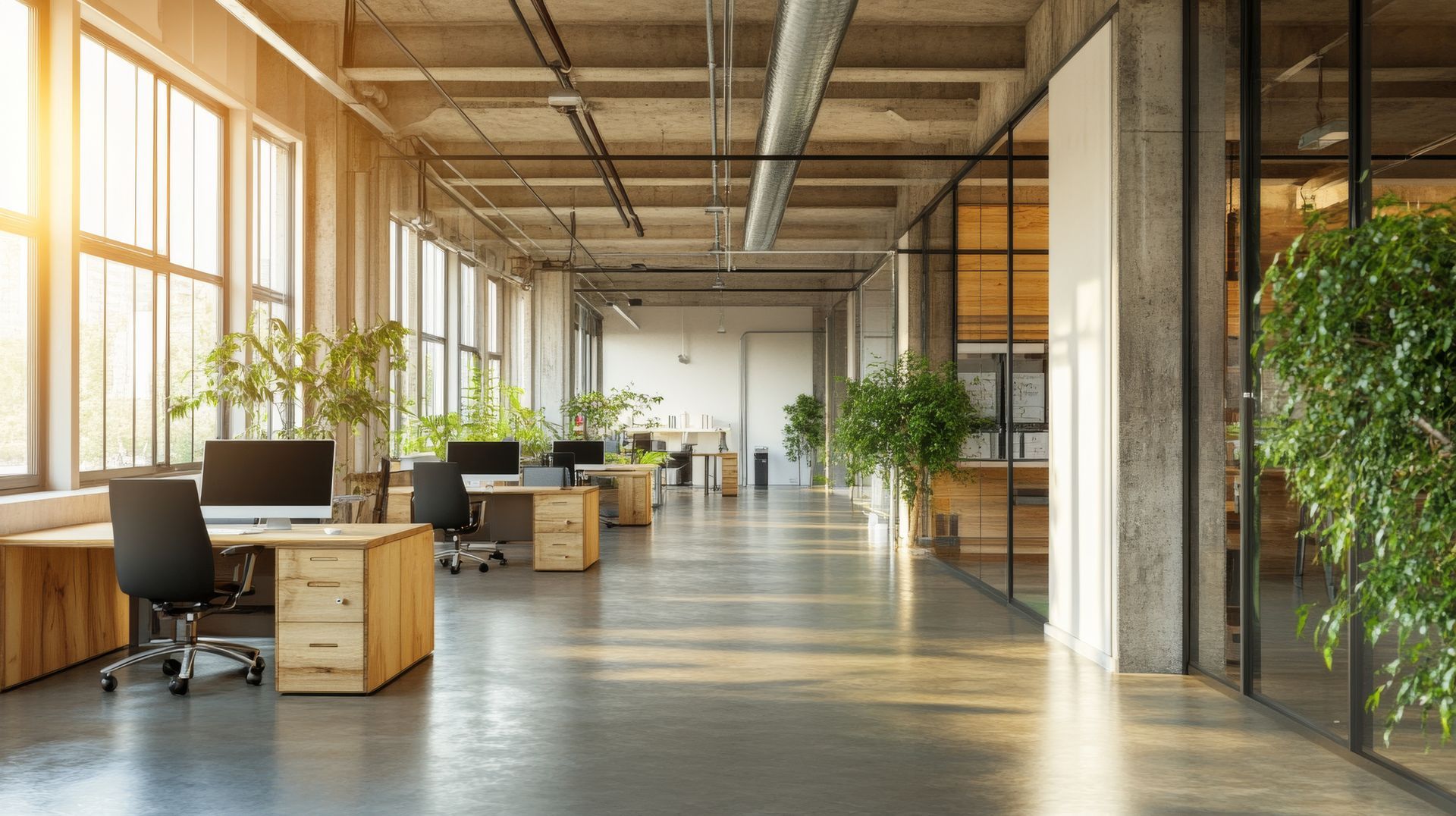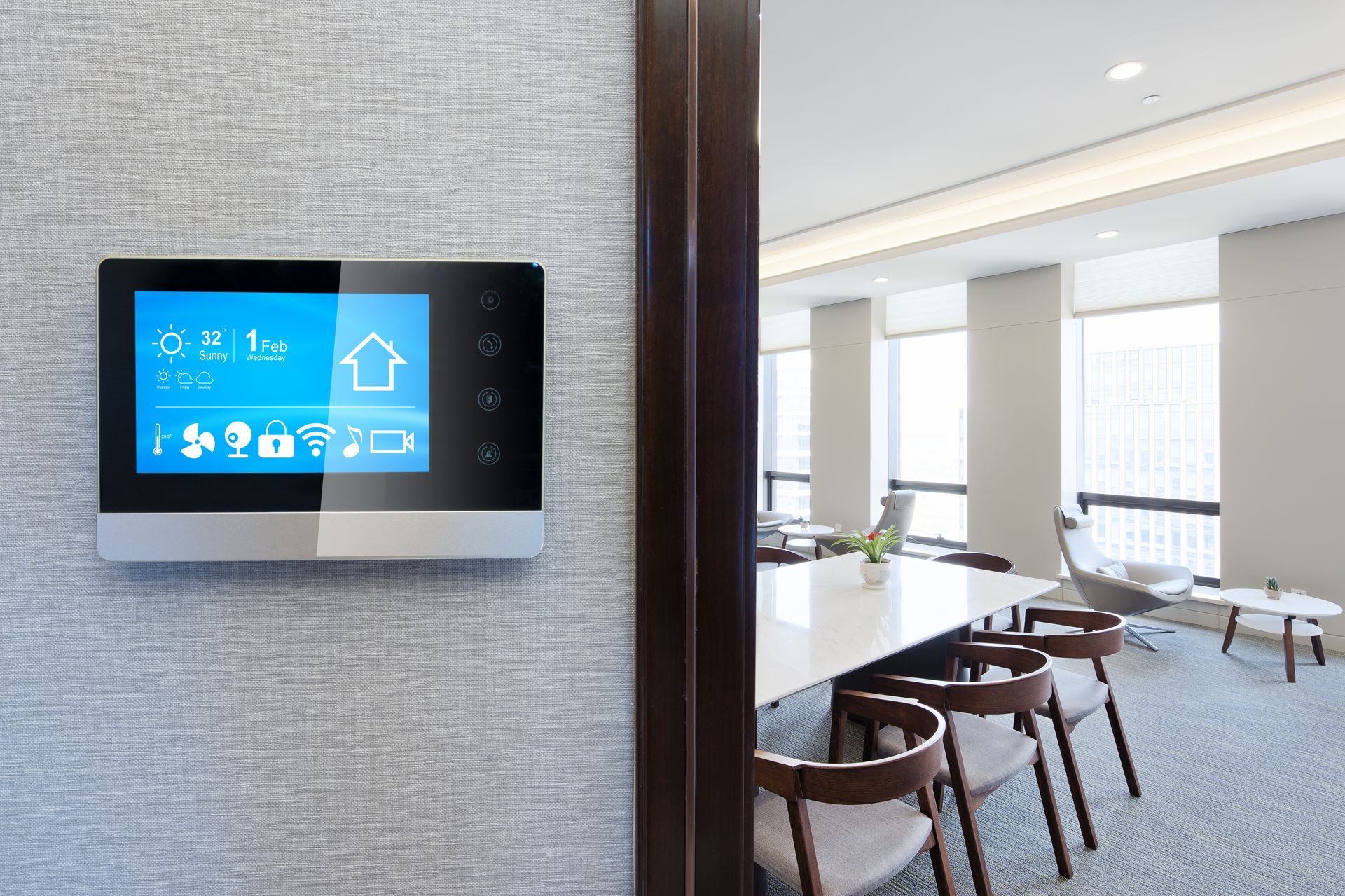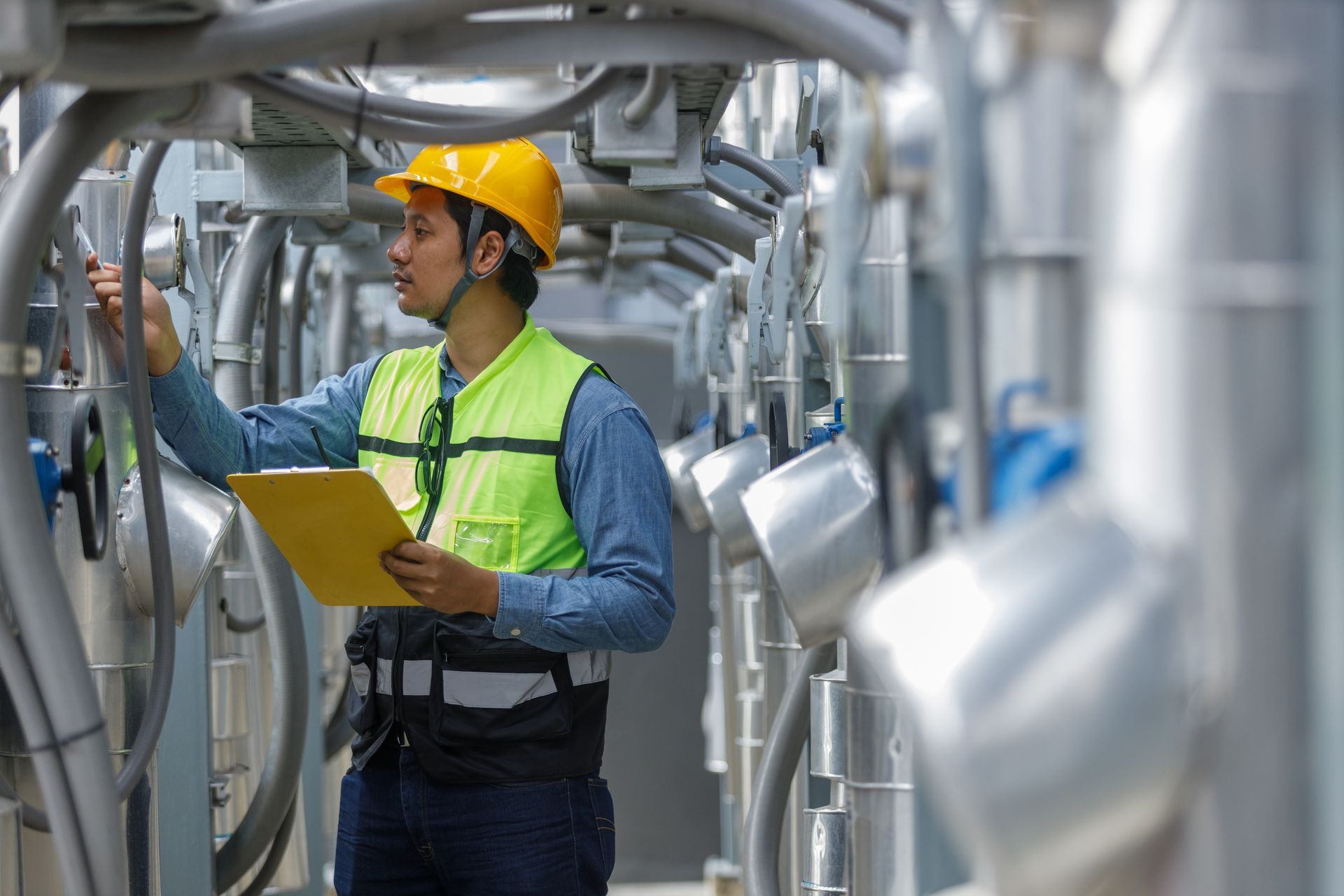Preparing Your Commercial HVAC System for Seasonal Changes
Transitioning between seasons can be challenging for commercial HVAC systems. Each season brings its temperature demands, and preparing your HVAC system accordingly is crucial to maintaining consistent performance, minimizing energy costs, and avoiding costly repairs. Whether you’re gearing up for summer's cooling needs or winter's heating demands, taking preventive measures can make all the difference.
Steps to Take for Winter and Summer Transitions
1. Clean or Replace Filters
- One of the simplest and most effective steps is to clean or replace air filters. Clogged or dirty filters force the system to work harder, reducing efficiency and increasing energy costs. For peak performance, replace filters at the beginning of each season or often in high-use areas.
2. Inspect and Clean Coils
- Evaporator and condenser coils must be cleaned regularly to avoid reduced airflow and efficiency. Dirty coils can lead to overheating in the summer or poor heating performance in the winter. Regular cleaning improves heat exchange, making the system more efficient for heating and cooling.
3. Calibrate Thermostats
- Thermostats play a significant role in maintaining comfortable indoor temperatures without overburdening your HVAC system. Before the heating or cooling season begins, calibrate thermostats to ensure they’re providing accurate readings. For even better control, consider upgrading to programmable or smart thermostats that adjust based on occupancy and time of day.
4. Check Refrigerant Levels
- Proper refrigerant levels are essential for effective cooling. Low refrigerant levels can reduce cooling capacity, causing the system to work harder and potentially damage the compressor. Before summer arrives, have a professional check refrigerant levels and inspect for leaks.
5. Inspect Ductwork for Leaks or Blockages
- Leaks or blockages in the ductwork can lead to uneven temperature control and higher energy bills. Sealing leaks and clearing out obstructions ensures efficient airflow, which is critical during peak heating and cooling months.
6. Test Heating and Cooling Functionality in Advance
- Test your heating and cooling functions well in advance to avoid surprises when temperatures change. This way, if any issues arise, they can be resolved before the system is needed at full capacity.
7. Clear Debris Around Outdoor Units
- Outdoor units need ample airflow to operate efficiently. Clear any leaves, dirt, or debris around outdoor units before summer and winter to prevent airflow restrictions and potential damage.
8. Schedule a Professional Inspection
- Schedule a seasonal maintenance check with a qualified HVAC technician for optimal performance. A professional can detect issues early and perform necessary tune-ups, ensuring your system runs smoothly throughout the season.
Common Issues That Arise with Seasonal Changes
Short Cycling
- When switching between heating and cooling modes, HVAC systems can experience short cycling, where the system turns on and off frequently. Issues like thermostat malfunctions, refrigerant leaks, or clogged filters can cause short cycling, which not only leads to discomfort but also increases the system's wear.
Frozen Coils
- Frozen coils are common during the transition from winter to summer, often due to low refrigerant levels, clogged filters, or airflow issues. Frozen coils reduce cooling efficiency and, if left untreated, can cause permanent damage.
Thermostat Malfunctions
- As the seasons change, thermostats may need recalibration or replacement. Incorrect temperature readings can lead to overuse or underuse of the HVAC system, driving up energy costs and causing inconsistent comfort levels.
Humidity Control Issues
- Seasonal changes often bring changes in humidity. An HVAC system that isn’t prepared may struggle to maintain comfortable humidity levels, leading to discomfort, poor air quality, or even mold growth in humid conditions.
Drain Line Clogs
- During the summer, air conditioners produce moisture that needs to drain properly. Clogged condensate drains can cause water backups and leaks, leading to water damage and potentially mold growth in the system.
Preventative Measures to Avoid Costly Repairs
Invest in Preventative Maintenance Contracts
- Consider signing up for a maintenance contract that includes seasonal tune-ups. These regular checks can catch potential issues before they escalate into costly repairs, saving you time and money in the long run.
Upgrade Your System if It’s Over 10–15 Years Old
- Older systems often require more maintenance and may not have the energy-efficient features of newer models. Investing in a modern, energy-efficient system can reduce maintenance costs and prevent frequent breakdowns.
Install Surge Protectors for Outdoor Units
- Outdoor HVAC units are at risk for damage from power surges, especially during seasonal storms. Installing a surge protector can prevent electrical issues, which are often expensive to repair.
Monitor Energy Bills for Unusual Spikes
- Keep an eye on energy bills. A sudden increase may indicate an issue with the HVAC system, such as an airflow restriction or a refrigerant leak. Addressing these problems early can prevent more significant repairs down the road.
Educate Building Occupants on Proper Thermostat Usage
- Occupants may unknowingly adjust thermostats to extremes, forcing the system to work harder than necessary. Clear guidelines on thermostat use can help reduce energy waste and maintain system efficiency.
Use Programmable or Smart Thermostats to Reduce Energy Load
- Programmable thermostats help you avoid running the system when the building is unoccupied, which reduces strain on the HVAC system. Smart thermostats take this further by learning patterns and adjusting temperatures accordingly, optimizing comfort and energy savings.
Conclusion
Preparing your commercial HVAC system for seasonal changes is essential for maintaining comfort, reducing energy costs, and avoiding unexpected repairs. You can ensure a smooth transition between seasons by following these steps, addressing common issues, and implementing preventive measures. A well-prepared HVAC system not only keeps your building comfortable but also extends the lifespan of the equipment, reducing long-term maintenance costs. For comprehensive seasonal HVAC maintenance, contact our team of professionals. We’re here to help you keep your system running efficiently year-round.



Services

Contact
info@prwavemechanical.com
24/7 Service
PR WAVE MECHANICAL CONTRACTORS LICENSE #1089024. | #2218518
© 2024 All Rights Reserved | PR Wave Mechanical Contractors | Web Design by GoBeRewarded
